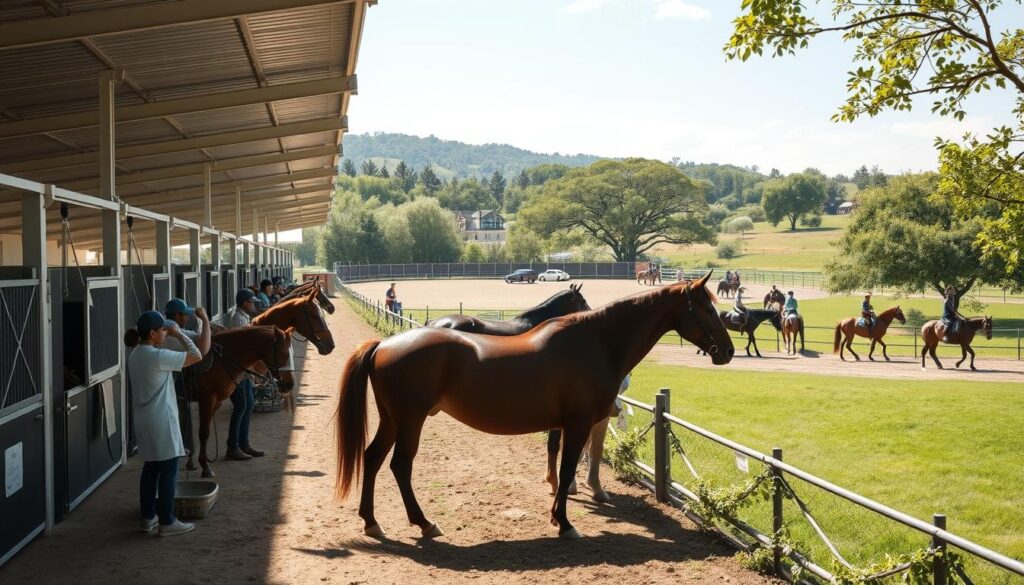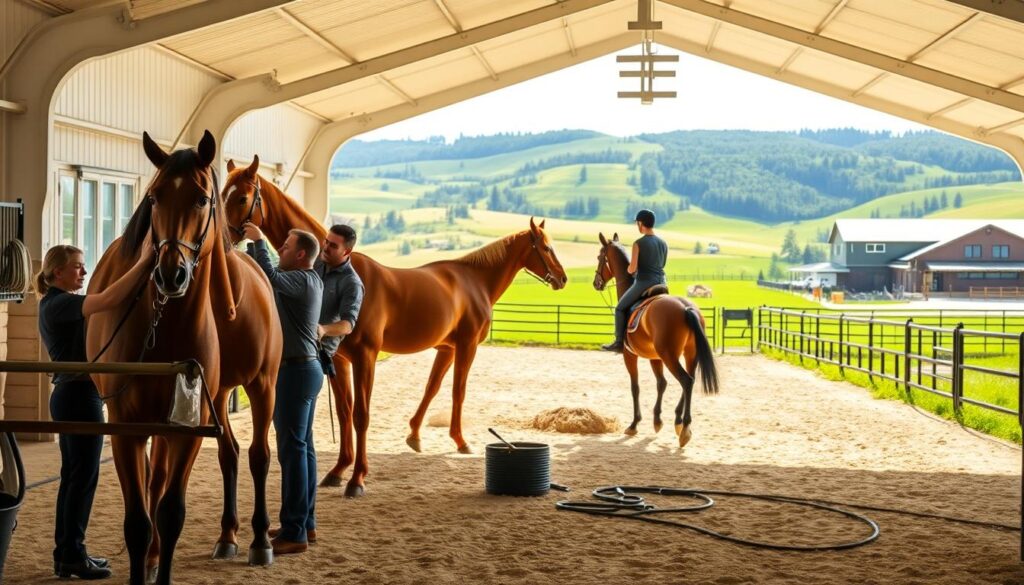Did you know facilities with knowledgeable teams report 80% fewer preventable health incidents in their herds? While state-of-the-art barns often grab attention, the true backbone of exceptional equine wellness lies in the hands of those who work with these animals daily.
Top-tier boarding operations worldwide prioritize deep practical knowledge when building their teams. From Switzerland’s Olympic-level stables to Canada’s premier training centers, managers consistently seek professionals who can spot subtle changes in behavior or health. This expertise directly impacts everything from nutrition plans to emergency response times.
Seasoned professionals bring more than just technical skills. They develop trust-based relationships with animals, recognizing individual needs that generic protocols might miss. Their ability to anticipate challenges before they escalate creates safer environments and reduces stress for both equines and owners.
Key Takeaways
- Preventable health issues drop significantly with skilled teams
- Global facilities prioritize practical knowledge in hiring
- Observational skills impact daily care quality
- Trust between animals and handlers improves outcomes
- Proactive approaches reduce operational risks
- Industry reputation ties closely to team capabilities
As boarding standards evolve, the difference between adequate and exceptional care increasingly depends on human expertise. This guide explores how the right team composition elevates facilities beyond basic requirements, creating environments where animals truly flourish.
Introduction to Horse Boarding Facilities and Staff Expertise
What transforms a simple stable into a sanctuary for animals? It starts with the right mix of services and people who know how to deliver them. Modern boarding operations range from basic pasture housing to full-service training centers, each requiring specific competencies to thrive.
Understanding the Scope of Equine Care
Quality facilities offer more than shelter. Daily responsibilities might include feeding schedules, health checks, and exercise routines. A 2023 survey of Canadian stables revealed that locations with structured wellness programs saw 40% fewer vet emergencies annually.
| Service Tier | Key Features | Required Skills |
|---|---|---|
| Basic Boarding | Stall cleaning, hay delivery | Safety protocols, time management |
| Premium Care | Custom diets, hoof maintenance | Nutrition planning, injury prevention |
| Specialized Training | Exercise regimens, show prep | Behavior analysis, therapy techniques |
The Importance of a Skilled Team Environment
Successful operations rely on collaboration. At British Columbia’s Coastal Ranch, staff cross-train in multiple roles – from grooming to emergency response. This flexibility allows them to adapt during busy seasons or unexpected challenges.
“Our crew’s ability to work cohesively directly translates to healthier animals and happier clients,” notes a manager at Alberta’s Mountain View Stables.
Effective management practices create frameworks where talent shines. Regular skills workshops and clear communication channels help teams stay aligned with facility goals while growing their expertise.
The Impact of Experienced Horse Care Staff on Equine Health and Facility Success
Top-performing barns share one secret: professionals who act before problems arise. A 2024 analysis of Ontario job listings reveals 78% of premium facilities require certifications in emergency response and nutrition planning. These specialists don’t just react—they prevent issues through proactive monitoring and tailored wellness strategies.
Consider how Alberta’s Prairie Wind Stables reduced lameness cases by 42% after hiring a manager with advanced hoof care training. “Early intervention saves money and builds client trust,” notes their operations lead. Facilities with such expertise often see faster recovery times and higher show-ring success rates.
Client retention directly ties to this knowledge. When owners notice consistent coat quality or improved athletic results, they’re 67% more likely to recommend a business. Job postings from Quebec to British Columbia now emphasize skills like therapeutic bandaging and stress-reduction techniques—tasks that demand both precision and intuition.
Effective leadership amplifies these benefits. Managers who schedule regular skills workshops report 35% fewer staff-related errors. By fostering teams that understand equine body language and nutritional nuances, facilities create environments where animals thrive—and revenue grows.
Essential Skills and Training for Optimal Horse Boarding Operations
How do top equine facilities maintain peak performance in their herds? The answer lies in combining foundational skills with specialized knowledge. From daily maintenance to competition prep, every task requires precision and adaptability.
Core Competencies in Grooming, Tacking, and First Aid
Daily operations demand mastery of basics. Proper grooming techniques prevent skin issues, while correct tacking ensures comfort during exercise. Facilities like Switzerland’s Alpine Sport Stables require workers to complete 120 hours of hands-on practice before handling animals independently.
| Service Level | Key Skills | Impact |
|---|---|---|
| Standard | Brushing, hoof cleaning | Basic wellness |
| Advanced | Therapeutic bathing, saddle fitting | Performance enhancement |
| Emergency | Wound cleaning, pulse checks | Health crisis prevention |
Specialized Techniques: Massage Therapies, Bandaging, and Show Preparation
Premium facilities invest in advanced training. “Our team’s massage certification program reduced recovery time by 30%,” shares a manager at Quebec’s Écuries Lumina. Competition prep demands unique skills—show grooming alone involves precise clipping patterns and coat conditioning methods.
“Technicians who understand lymphatic drainage bandaging become irreplaceable during show seasons.”
Continuous learning keeps operations sharp. Many Canadian barns now partner with veterinary colleges for workshops on new bandaging materials and stress-reduction methods. This commitment to growth ensures facilities meet evolving industry standards while keeping animals thriving.
Modern Care Practices: Innovations in Equine Management
Modern barns are rewriting the rulebook for animal wellness through smart prevention strategies. Instead of waiting for issues to surface, leading Canadian facilities now combine time-tested methods with cutting-edge solutions. This balanced approach keeps animals thriving while streamlining daily operations.

Integrating Preventative Care and Routine Maintenance
Forward-thinking stables schedule tasks like dental checks and hoof assessments months in advance. Manitoba’s Riverbend Ranch reduced colic cases by 58% after implementing structured feeding protocols. “Consistency prevents digestive issues,” explains their head groom. “We track each animal’s intake like clockwork.”
Daily environment upkeep plays equal importance. Dust-free bedding systems and automated waterers now complement traditional stall-cleaning routines. These upgrades save time while maintaining healthier living spaces.
Adopting New Technologies and Therapeutic Approaches
Innovative tools are changing how teams work. Alberta facilities use wearable hydration trackers that alert staff before dehydration occurs. Ontario’s Maplewood Stables credits laser therapy for reducing recovery time by 40% in muscle injuries.
“Combining massage guns with traditional cold hosing lets us address inflammation faster,” shares a technician from British Columbia.
Job listings increasingly seek tech-savvy candidates skilled in both manure management systems and herbal compress applications. This blend of old and new ensures animals receive comprehensive support tailored to modern needs.
Business Advantages: How Quality Staff Enhance Facility Performance
Successful equine businesses understand their greatest asset walks on two legs. Investing in skilled teams creates ripple effects that reach far beyond daily chores. When barns prioritize expertise, they unlock opportunities to stand out in competitive markets while building lasting client relationships.
Building Trust Through Expertise
Barns with reliable professionals see 73% higher client retention rates, according to Alberta job postings. One Ontario facility offering above-average salaries reported filling positions 50% faster than competitors. “Our team’s consistency became our best marketing tool,” shared a Manitoba stable owner.
Key benefits of strategic hiring include:
- Fewer errors in feeding schedules and health checks
- Smoother coordination during peak seasons
- Increased capacity for specialized services
Streamlining Success
Efficient teams make the most of every work hour. British Columbia listings highlight barns using cross-trained staff to handle multiple roles. This flexibility allows facilities to accept more boarding requests without compromising care quality.
| Investment | Outcome | Client Response |
|---|---|---|
| Ongoing Training | Faster Task Completion | 93% Satisfaction Rate |
| Team Bonuses | Lower Turnover | 82% Referral Increase |
Positive work cultures also attract top talent. Quebec barns offering flexible hours and skill-building opportunities report 40% longer employee retention. Happy teams create welcoming environments where both animals and owners thrive.
“Our staff’s dedication directly impacts our five-star reviews,” notes a Saskatchewan job listing. “We reward that commitment with career growth paths.”
Real-World Insights: Success Stories and Case Studies from Canada
Imagine a barn where new team members train alongside Olympic-level grooms. This collaborative approach fuels success stories across Canada’s equine industry. Let’s explore how smart hiring and innovative programs create thriving environments for animals and professionals alike.

Cross-Border Wisdom in Action
British Columbia’s Coastal Ranch redesigned its training program after studying Switzerland’s elite stables. They now blend European hoof care techniques with Canadian pasture management practices. The result? A 35% drop in lameness cases over two years.
Workaway listings reveal similar trends. One Alberta facility seeking a “therapy position specialist” received 82 applications after highlighting their mentorship program. “Candidates want growth opportunities,” notes their manager. “We pair new hires with senior trainers for hands-on learning.”
Evolution of Equine Careers
Job roles have transformed dramatically. Where once “barn hand” meant basic chores, modern postings now list skills like:
- Nutrition program coordination
- Injury prevention strategies
- Stress-reduction therapies
Ontario’s Green Valley Stables credits this shift for retaining 90% of their team for 5+ years. Their secret? Regular skills upgrades and clear career paths. As one groom turned assistant manager shared: “They invested in my growth – why would I leave?”
“Our international internship program became our competitive edge,” says a Workaway host in Quebec. “Trainees from six countries share fresh ideas while learning Canadian best practices.”
Career Opportunities and Professional Development in Equine Management
Have you ever considered turning your passion for equines into a thriving career? The equine industry offers diverse roles for those willing to grow their skills. From managing daily operations to training future champions, these positions blend hands-on work with professional advancement.
Paths to Becoming a Skilled Barn Manager or Groom
Many professionals start as grooms, learning day-to-day operations through apprenticeships. Pennsylvania’s Willow Creek Stables recently promoted three grooms to management roles after they completed leadership training. Full-time positions often require:
- Certifications in stable management
- Experience with riding equipment maintenance
- Knowledge of animal nutrition needs
Part-time roles provide entry points for students or career changers. Florida listings often seek weekend assistants for feeding and turnout duties. These opportunities let newcomers test their interest while building essential skills.
Training Programs, Certifications, and Hands-On Experience
Quality education programs accelerate career growth. Massachusetts’ Equine Career Institute offers a 12-week course combining classroom learning with real-world practice. Graduates qualify for roles like:
| Position | Key Requirements | Avg. Salary (CAD) |
|---|---|---|
| Assistant Manager | CHA Certification | $42,000 |
| Head Groom | 3+ years experience | $48,500 |
“We prioritize candidates who show dedication beyond the riding arena,” notes a recent Ontario job post. “Understanding animal behavior matters as much as technical skills.”
International opportunities expand horizons too. Workaway listings in Germany and Australia often seek barn helpers willing to learn specialized techniques. These experiences build resumes while exposing workers to global best practices in equine needs management.
Conclusion
Exceptional equine facilities don’t happen by accident—they’re built through dedicated expertise and smart planning. Trusted teams reduce preventable health issues while boosting client confidence, as shown in Canadian case studies from British Columbia to Quebec.
Every part of the operation matters. Barn design, training protocols, and management practices work together like a well-oiled machine. Facilities embracing continuous learning see fewer emergencies and stronger reputations, proving that growth-focused cultures benefit both animals and businesses.
The equine field offers exciting opportunities for those ready to grow. From specialized therapy roles to farm management positions, professionals can shape thriving environments where knowledge meets compassion. Whether you’re maintaining pastures or coordinating nutrition plans, your contributions become part of something bigger.
Ready to make your mark? Explore how modern farm operations combine tradition with innovation. Remember: quality thrives where skill meets dedication—a truth that keeps barns flourishing across Canada’s diverse landscapes.

